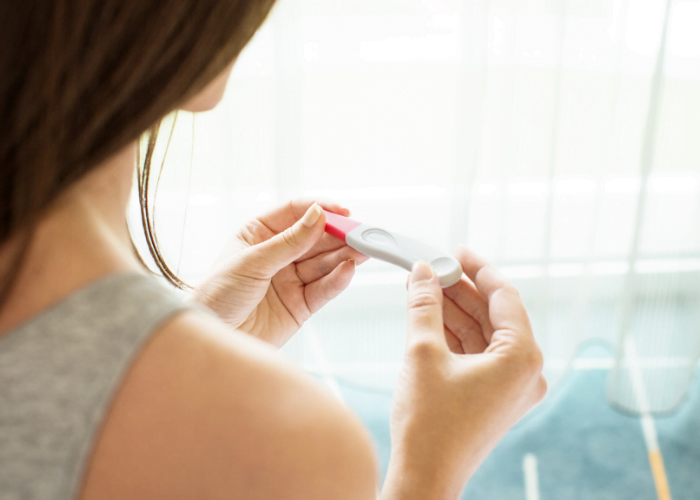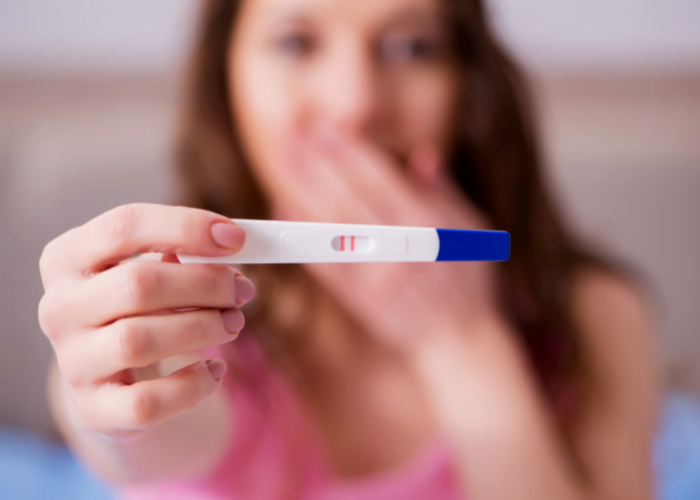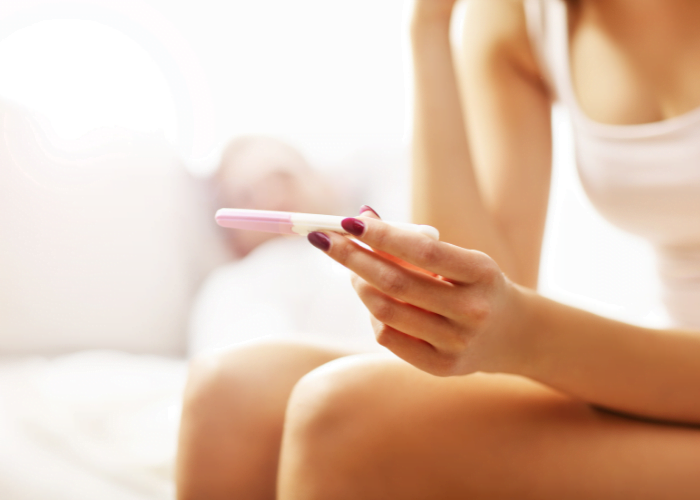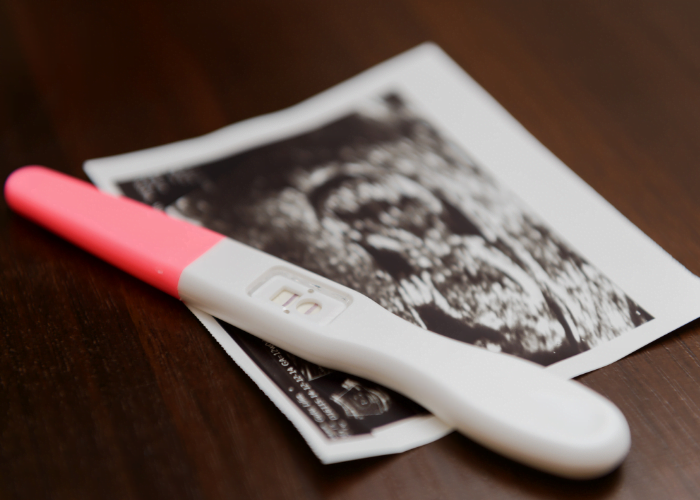How Long After Implantation Can You Test for Pregnancy?
Wondering how long after implantation you can test for pregnancy? Learn how soon you can take a pregnancy test for the most accurate results.

Trying to figure out if you might be pregnant? The temptation to take a pregnancy test early can feel hard not to give into! The waiting game is tough, but if you take one too early it can often lead to false result.
Note: I am not a medical professional. The information provided in this article is for educational purposes only. Always be sure to check with your healthcare provider. Some links may be affiliate links. That means I may make a commission if you use my links to purchase, at no extra added cost to you! I only recommend products that I personally love and believe in. Full disclaimer here.
What is Implantation?
If you’re confused about why the length of time matters, you’re not alone! It can be a little confusing to figure out how long after implantation you can test. It has to do with implantation of the egg.
So, let’s talk first a little bit about what implantation even is.
As most of us know, during a woman’s monthly cycle an egg is released from the ovary. Part of that release leaves behind a shell, while is called the corpus luteum. This is what is responsible for releasing the hormones progesterone and estrogen. Progesterone is what signals to the lining of the uterus to prepare itself, because a fertilized egg might be headed its way.
After an egg is fertilized, it travels down the fallopian tube to the uterus, with a goal of reaching the uterine lining, or endometrium. Just this part of the journey takes on average six to eight days.
After the egg reaches your uterus, the fertilized egg attaches itself by burrowing its way into the lining of the uterine wall. This is what is meant when we talk about implantation. This takes a few days to complete. For some women, they might experience a slight bleed.

What Happens After Implantation?
Your monthly period is triggered when an egg doesn’t implant in your uterus. This causes the progesterone levels in your body to drop, result in the uterine lining coming away about two weeks after ovulation, resulting in your period.
However, if implantation DOES happen, the uterus needs to send a new signal out to the corpus luteum to continue producing progesterone to continue maintaining the uterine lining instead.
This is achieved by the newly forming placenta releasing a hormone called human chorionic gonadotropin, or hCG. While all women have small traces of hCG in their bodies, after implantation these levels rice. hCG is the pregnancy hormone that is tested to indicate pregnancy.
So, why does it matter? Because waiting just a few days can make a difference between a negative and positive pregnancy test. During the first eight weeks of pregnancy, hCG levels double every couple of days!
Is It a Period or an Implantation Bleed?
Every woman and every pregnancy is different, but many women experience bleeding or cramping that indicates implantation has happened.
If you’re wondering if it’s an implantation bleed or your period, there are a few things you can look for:
First, cramping associated with implantation are typically mild and pass quickly, while those from a period are stronger.
An implantation bleed will typically be light spotting, lasting only a few hours to a few days, and might start and stop. Heavier bleeding typically indicates your period.
Spotting or discharge with an implantation bleed is generally pinkish or dark brown and typically light, while your monthly bleed will often be a brighter red.
Finally, if your menstrual cycle is regular, another indicator is that implantation bleeding will generally happen about ten days after ovulation, while a period isn’t until 14 days after.
However, keep in mind that not all women experience an implantation bleed, or even some of those hallmark early signs of pregnancy. Every body is different!

How Soon After Implantation Should I Take a Pregnancy Test?
While you can absolutely take a pregnancy test as soon as the first day of a missed period, it’s generally recommended to wait at least a few days to a full week more.
One of the reasons is that many women have irregular cycles. This can be due to normal fluctuations, illness or stress, which means a larger percentage of women reach their fertile window earlier or later than expected.
This is important, because it impacts whether levels of hCG are detectable in your urine. So for example, if you ovulate a week later than you originally thought, it might take an extra week to get a positive pregnancy test.
Some women also experience unrelated luteal phase spotting. This is caused by a second surge or estrogen and is completely normal. Others might not experience any kind of implantation bleeding!
The best recommendation is to try to wait at least a full day after your missed period to take a pregnancy test.
Methods of Pregnancy Testing
When it comes to testing for pregnancy and hCG levels, there are two options: a blood test or with a urine test.
A home pregnancy test is the route most women choose, as they are easy to do by yourself at home and now sensitive enough to detect small amounts of hCG in your urine even with an early pregnancy test.
If you’re curious, look for the sensitivity level on the packaging. It is listed in mIU/mL (milli-international unit or milliliter). These typically range between 10mIU/mL and 50 mIU/mL. The lower the number, the more sensitive the test kit is.
Here are a few with great reviews you can get on Amazon. This one and this one both have pretty sensitive levels listed.
However, it’s important to keep in mind that even with an extra-sensitive home test, there might not be enough hCG in your urine yet for detection. This can result in a negative test that is in actuality a false negative.
In the event that you get a negative pregnancy test result but still think you’re pregnant, wait at least 48 hours and test again. It’s possible that the hormone levels in your urine might have risen enough during that time.
A positive blood pregnancy test can be detected as soon as six to eight days after conception, as it is found in your blood much sooner than in urine.
Your healthcare provider will be able to administer an hCG blood test, and might still order one even with a positive urine pregnancy test.
Related Posts You Might Enjoy:
Free Printable Pregnancy Planner Workbook and Journal
How to avoid stretch marks and saggy skin during pregnancy

Final Thoughts on How Long After Implantation Can You Test for Pregnancy
So, when is the right time to take a pregnancy test for the most accurate reading and best results? You want to wait for successful implantation to have occurred. The implantation process can take a few days, so a good idea is to wait at least 1 full day after your missed period.
Every woman’s body is different, as is how long the implantation process might take for each person. Taking a pregnancy test too early can result in an inaccurate result, so as hard as it can be to play the waiting game, it truly is worth it to make sure you don’t receive a false negative result.







